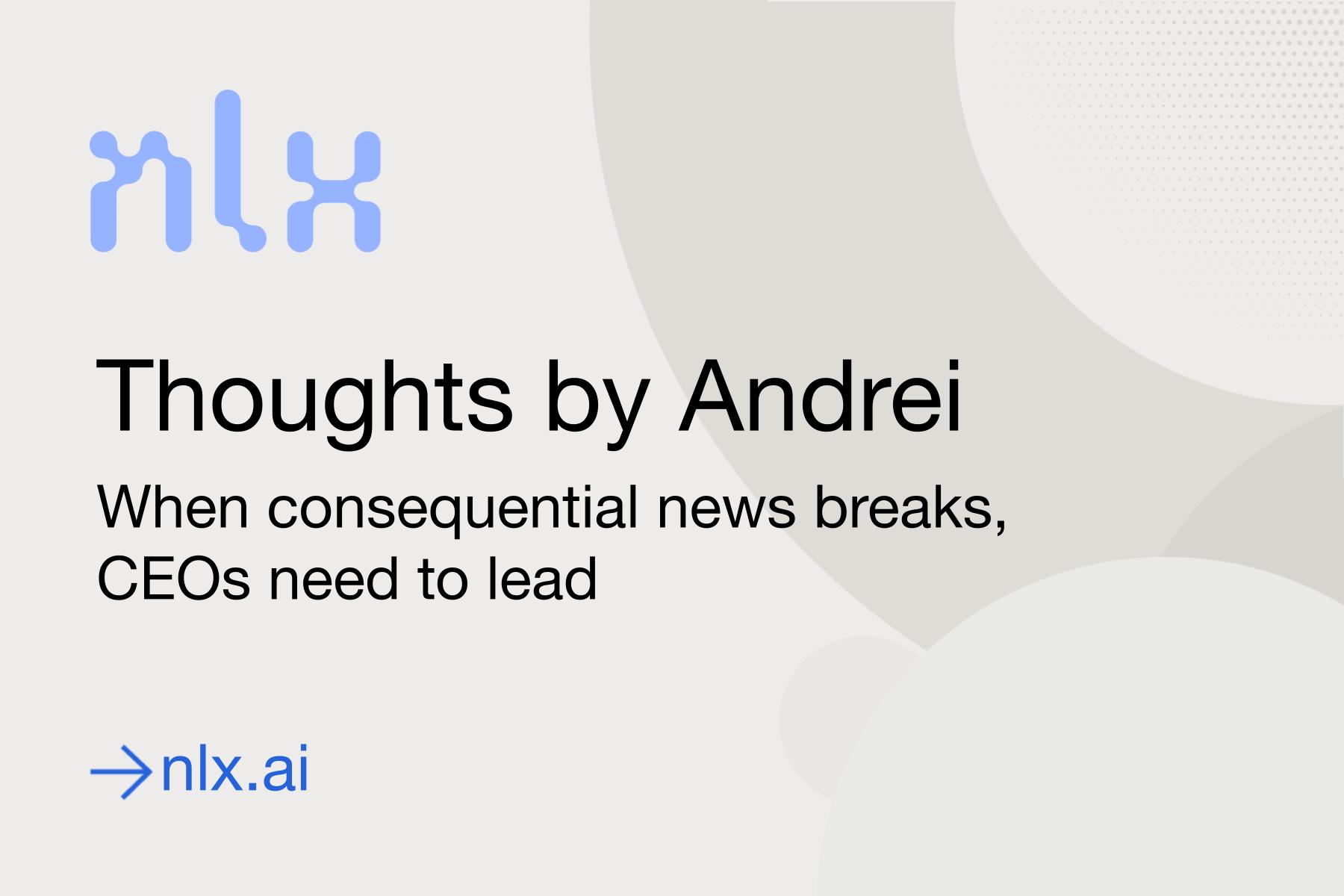A few years ago, CEOs were able to ignore the news cycle if the news didn’t directly relate to the business. That has changed.
“According to the 2022 Edelman Trust Barometer, 60% said that when considering a job, they expect the CEOs to speak out publicly about controversial social and political issues that the prospective employee cares about.” - Forbes
“CEO activism, the growing trend of top executives speaking out on sensitive social and political issues, has been labeled the ‘new normal.’” - Harvard Business Review
We live in a connected world with a global economy. News happening halfway around the world can reach us in seconds and result in financial, social, physical, mental, and emotional impacts. Those impacts can not only affect a business, but depending on the kind of news, it can also impact your employees and how they show up to work.
So yeah, news of the day - even the kind that doesn’t directly relate to your business - impacts your business.
But in a new, emerging industry like Conversational AI, how should a CEO handle it? As a people-focused, employee first CEO, I think the answer is simple - have a real, authentic conversation about it.
Your employees are people with friends, family, hobbies, passions, and a full life outside of work. Do not ignore the full person, who has a background, a culture, an upbringing, friends, and family, that led them to think or feel a certain way about consequential news reports, or even take action. Having an authentic conversation acknowledges your employee as a whole person with life inside and outside of work.
I’m not afraid to share my thoughts and let my team know exactly where I stand on consequential news. I know that not everyone might agree with me, even as a small startup, but I’m not going to stop standing up for what I think is right just to save face. Bravery and Transparency are two of our cultural values for a reason!
Now sure, it’d be easy to look at everything above and go, “Wow, how original. A venture-backed startup CEO isn’t afraid to talk to his small group of employees about political issues.” And you’d be right. I do have that luxury of easier candor because the way a CEO talks to 25 or 40 staff, is different - though not by much - from how a CEO might talk to a staff of 500 or 2,000.
I specify that the difference isn’t by much because the same tenents should be used in crafting the message.
-- Did you weigh how what you said and how you said it could impact your employees, customers, and investors?
-- If you’re building your company correctly - which means focusing on Diversity, Equity, Inclusion, and Belonging (DEIB) from day one, did you consider how this might impact your belonging?
-- Now that you’ve shared your distaste or support for something, have you considered what action the business might take?
These are just a few of the top tenents that come to mind, but there are of course more depending on the type of industry, business, circumstances, etc.
Now of course there are always consequences to speaking out - not all of them bad! Should you need to correct something, then do so, learn from it, and move forward. Leaders are allowed to make mistakes and learn from them, just like everyone else.
But the fear of making a mistake should not be one of the reasons for not speaking up. Leaders need to lead.
I’m having tough conversations about consequential news with my team, and you should too.
As CNBC reporters Laura Wronski and Jon Cohen resolve in their article, “CEOs have a responsibility to their shareholders, but they also have to stand up to represent the interests of their employees and inspire their customers, and unlike the average worker, they often have a megaphone that will amplify their message. That’s a powerful tool.”

When consequential news breaks, CEOs need to lead
A few years ago, CEOs were able to ignore the news cycle if the news didn’t directly relate to the business. That has changed.
